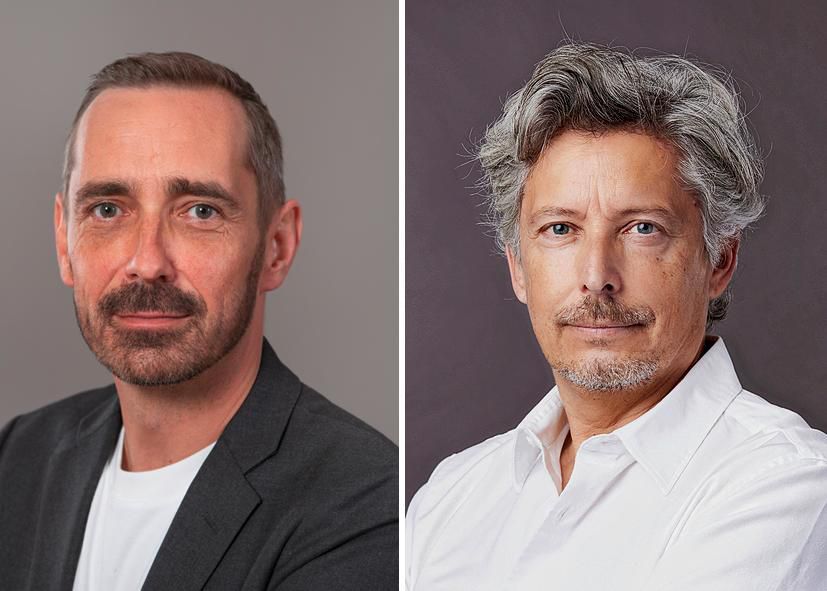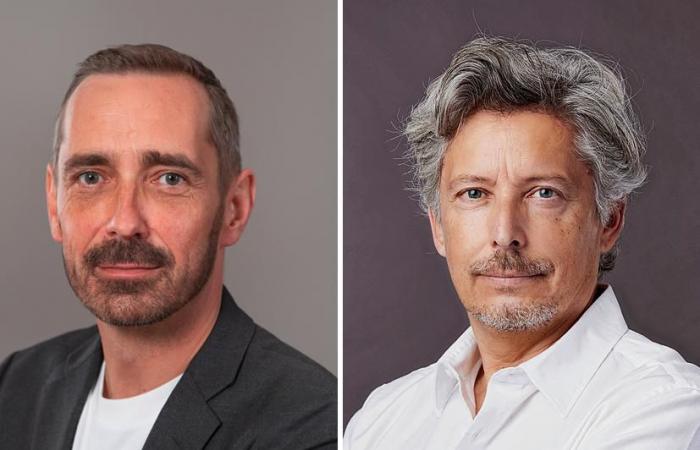Editorial debate –
Did you like the series “Winter Palace”?
RTS has just broadcast its blockbuster imagined in collaboration with Netflix. Two of our journalists debate its quality.

Published today at 2:43 p.m.

Subscribe now and enjoy the audio playback feature.
BotTalk
With “Winter Palace”, the RTS signs its first collaboration with the Netflix platform. In eight episodes just broadcast on TV, this series, directed by the Swiss Pierre Monnard (“Wilder”, “Les enfants du Platzspitz”…) and created by the American Lindsay Shapero (“The Chameleon”, “Without limits” …), tells the story of the hotel ambitions of a young Swiss, André Morel, and the birth of Alpine tourism.
The year is 1899. Between two romantic passions, he will have to face village rebellion, the ambition of an American speculator and other twists of fate. Since it was put online on rts.ch, this blockbuster has displeased as much as it has attracted spectators. In the café as on our platform «Series fan»where “Winter Palace” obtains an average score of 3 out of 5. A misleading score which masks a division of opinions, with more than half of the votes concentrated at the extremes. Opposing opinions shared by our journalists.
Gérald Cordonier: “Yes, it brings RTS into the big leagues”
Do not look for “Winter Palace” as the definitive biopic of Haut-Valaisan César Ritz who became, at the end of the 19the century, synonymous with luxury. Even less a rigorous sum around the birth of Alpine tourism. When the credits roll on the fictional village of Champaz, the tone is set: this series is going to have fun with our identity. And put under the (big) scalpel of an American screenwriter the ingredients that have made Switzerland’s reputation: its hotels, its landscapes, the toughness of spirit in the mountains, its tradition of innovation…
“Winter Palace” does not compete with the recent «Davos 1917»great success of Alemannic know-how. Nevermind! This series proves that French-speaking creation can shake off disasters such as«Endangered species »the bitter failure of 2024. With chauvinism, we are delighted to see the work of one of our most talented directors dubbed by the giant Netflix. After its sluggish start and its surrounding caricatures, the RTS blockbuster keeps up the pace. She plays the modernity card to appeal to audiences of all generations. Boldly, she multiplies references – from jazz to psychotropic drugs – to depict the turn of a century.
All its intelligence is to merge into a few destinies hundreds of anecdotes and small historical facts which have really shaped tourism… which we still know today.
-
Gérald Cordonier, head of the Culture section (left), and Christophe Passer, journalist.
Yvain Genevay / Tamedia
Christophe Passer: “No, it looks like a soft snow carrot”
“Winter Palace” resembles a long carrot of soft snow, where one could read the strata of a stylistic pile-up. Firstly, the pseudo-serious historical saga, reconstruction of the first luxury hotels in our Alps. Deuzio, piled on top, the double-deal: hidden children, old jealousies, ruin and punishment, one-night stand at the shelter.
Third, always on top of that, the pile of clichés to make it modern: crooked priest who loves flesh and money, the stupid and greedy American, the shameful homosexual who is looking to come out.
Quarto, placed at the top, the shifts, inconsistencies and changes in lousy tone. The incongruous lounge pop jazz landing, “Bridgerton Chronicle” style, of the black sax trio. The incongruous (bis) attack on the hotel, Capitol style, by stupid villagers in fur hats. The incongruous (ter) of the shepherd never left the 19th centurye century, but who is a “MacGyver”: heating and electrical engineer, telephone installer, decorating pro. The incongruous (again!) of events hôteliers genre «Emily in the Alps», etc.
Add to this a detestable, spineless main character and his wife whose opportunistic ambition they want to sell us in «empowerment» feminist. “Winter Palace” goes in all directions, and we never find our way back into the mountain. The decorations are good.
Gerald Cordonier is head of the Vibrations section (Culture & Society) for the platforms, newspapers and magazines of Tamedia Suisse Romande: “Le Matin Dimanche”, “24 Heures”, “La Tribune de Genève” and “Femina”.More info
Christophe Passerborn in Fribourg, has worked at Le Matin Dimanche since 2014, after working in particular at Le Nouveau Quotidien and L’Illustré. More info
Did you find an error? Please report it to us.
0 comments



